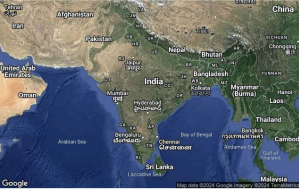GLOBAL WARMING
Global warming refers to the long-term increase in Earth's average surface temperature due to human activities, primarily the emission of greenhouse gases like carbon dioxide (CO2) and methane (CH4). These gases trap heat in the atmosphere, leading to various environmental impacts, including:
-
Rising Temperatures: Increased global temperatures can lead to more frequent and severe heatwaves.
-
Melting Ice Caps and Glaciers: The polar ice caps and glaciers are melting, contributing to rising sea levels.
-
Sea Level Rise: As ice melts and ocean water warms, sea levels rise, which can lead to coastal flooding and erosion.
-
Extreme Weather Events: Global warming is linked to an increase in the frequency and intensity of extreme weather events, such as hurricanes, droughts, and heavy rainfall.
-
Ocean Acidification: Increased CO2 levels are absorbed by oceans, leading to acidification, which affects marine life, particularly coral reefs.
-
Ecosystem Disruption: Changes in temperature and weather patterns can disrupt ecosystems, affecting biodiversity and species survival.
-
Impact on Agriculture: Changes in climate can affect crop yields, food security, and water availability.
Addressing global warming requires international cooperation and efforts to reduce greenhouse gas emissions, transition to renewable energy sources, and implement sustainable practices.



